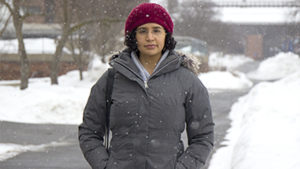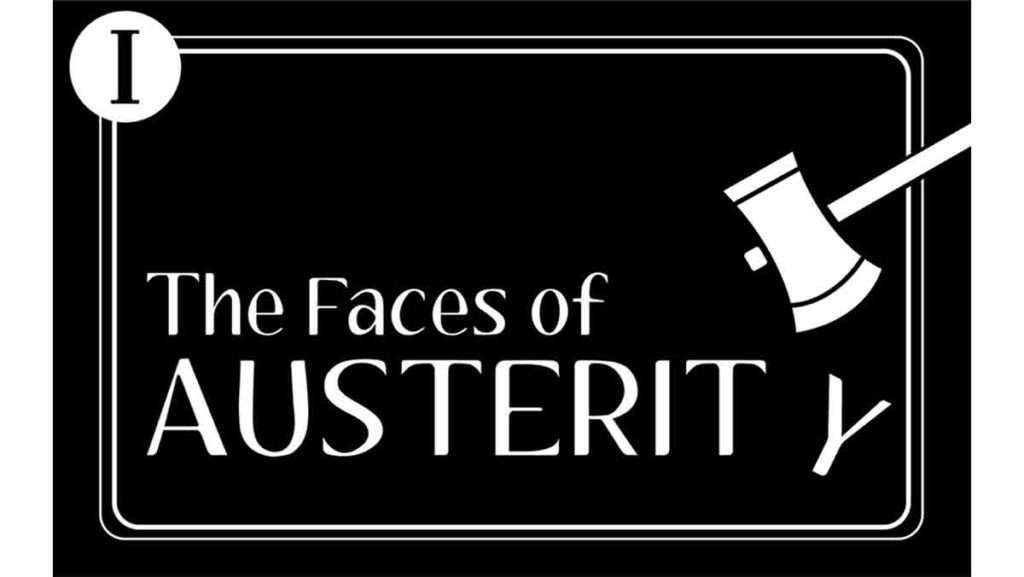
IC Closed to Debate?
Scott Thomson, director of forensics and assistant professor in the Department of Communication Studies, has always enjoyed a good argument. From his undergrad days as a member of the U.S. National Debating Team through his graduate studies in Argumentation to his job as director of forensics, coaching Ithaca College’s Speech and Debate team over the past 20 years, Thomson has revelled in sparring about ideas. He’s even taught an Ithaca Seminar called “The Rhetoric of Conspiracy Theory.”
He loves to travel, and he has had the chance to when the team attends regional and national tournaments. Last year, he led the team to victory in the Junior Varsity Division championship in St. Louis, Missouri. One of the things he likes best about the debate team, he said, is that, “It’s a place anyone can join.” Students from all different backgrounds have participated, leading to “outstanding diversity.”
Thomson, 55, is a first-generation college student with a son currently attending the college. His wife is from Mexico and teaches in an Ithaca elementary school and loves it. Heading south of the border is often on the family’s travel itinerary, and they are active in the local Latinx community. If he has to leave Ithaca for a new job, he will also have to depart from serving on the board of One World Market on the Ithaca Commons — a nonprofit, fair–trade store where proceeds go to the international artists who create the products. Thomson has been committed to keeping the employees safe and employed through the COVID-19 pandemic.
By losing its coach as part of the “rightsizing” plan, the debate team may be approaching the end of its approximately 100-year-old existence.

Professor claims cuts belie IC’s anti-racist goals
Lenora Warren is a lecturer in the Department of English at Ithaca College, with a Ph.D. in English from New York University in New York. She is an African–American and Latina woman and has taught African–American literature at Ithaca College for approximately two years. At 42, she is a runner who has vowed to run a marathon for her 45th birthday. She left a tenure-track job at Colgate University in Hamilton, New York, because her husband was the executive director of the Cornell Prison Education Program, “and I didn’t want to become one of those super-commuter couples.” She also happened to be having a baby, who is now a 21-month-old toddler.
Warren’s book, “Fire on the Water: Sailors, Slaves, and Insurrection in Early American Literature,” is about the history and literature of abolition and insurrection in the eighteenth and nineteenth centuries. She reflects, “I’m interested in how violence becomes a political act and gets read — and racialized — which depends on which audience is reading it. Of course, this impacts our current moment.” As a scholar proposed to be terminated at Ithaca College, she feels herself to be in “a surreal position,” “demoralized” and with “a sense of total identity loss.” She still gets invitations to publish articles — chapters for two different Melville anthologies are in the works — but, “I don’t have a position to support that. When you’re not working for a college, academic work is unpaid labor. And I’ll be working in isolation.”
Warren finds it especially perplexing that the college claims to believe in diversity and anti-racist education, yet “is cutting that part of the curriculum away.” She said that she had to stop attending administration-run faculty forums “because at a certain point I started to feel very dispirited by the language of, ‘This is going to be hard for all of us; our college is going through a hard time.’ I realized that the ‘we’ being referenced were the ones who were staying, whose jobs were safe — not the ones being fired. It isn’t even my college anymore.”
This weekly series aims to put human faces on the faculty members who have been notified of their termination as a result of the Academic Program Prioritization. Faculty members interested in sharing their stories can reach out to Harriet Malinowitz, lecturer in the Department of Writing, at [email protected].








